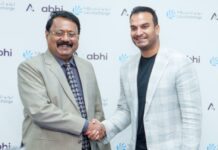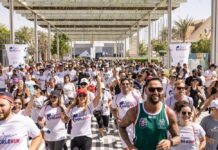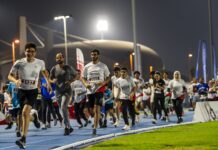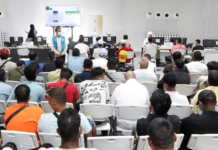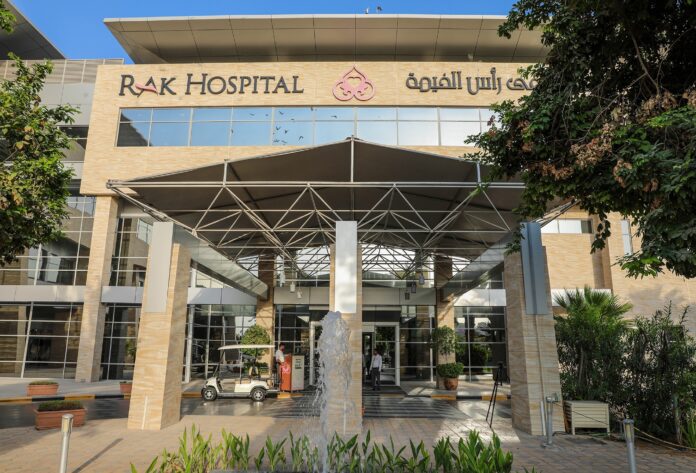RAK Hospital is putting prevention front and center through its
transformative “ObeFit” webinar series—an educational arm of the hospital’s
annual community initiative, the RAK Biggest Weight Loss Challenge.
Hosted by Dr. Harkirat S. Wilkhoo, Specialist in Lifestyle Medicine and
Homeopathy at RAK Hospital, the recent ObeFit webinar delivered compelling
insights into why obesity is now recognized not just as a lifestyle issue
but a full-blown chronic disease—with links to diabetes, heart disease,
certain cancers, hypertension, liver disorders, sleep apnea, and even
depression.
The webinar broke down the difference between being overweight and obese,
explaining that a Body Mass Index (BMI) between 25 and 29.9 is considered
overweight, while anything over 30 is classified as obesity. Dr. Wilkhoo
also highlighted different obesity grades—from mild to severe—and
emphasized the importance of looking beyond BMI alone. Other measures like
body fat percentage, waist-to-height ratio, and Broca’s index offer more
nuanced ways of understanding individual risk.
He went on to explain how fat distribution impacts health: “Overweight
individuals usually store fat under the skin—this tends to strain the
joints and musculoskeletal system. But obese individuals store visceral fat
around internal organs, which has far more serious consequences,” Dr.
Wilkhoo cautioned. “Visceral fat significantly raises the risk of chronic
conditions like diabetes, fatty liver, stroke, and cancer.”
One of the most empowering messages of the session? Even small weight
losses matter. Shedding just 5–10% of body weight can dramatically reduce
one’s risk of serious disease.
*Understanding the Root Causes*
In a clear and accessible format, Dr. Wilkhoo explained the three
categories of obesity risk factors:
1. *Non-modifiable* – such as genetics, age, gender, and race
2. *Medical factors* – like hormonal disorders or medications that lead
to weight gain
3. *Modifiable lifestyle choices* – including poor diet, inactivity,
stress, and alcohol consumption
“By focusing on what we can change, we empower individuals to take
control,” he emphasized.
*Why Metabolism Matters*
Participants also gained insight into how metabolism works. According to
Dr. Wilkhoo, 50% of food intake is used just to keep the body functioning,
while 25% goes to daily routines and the remaining 25% becomes energy
reserve. If not used through physical activity, it gets stored as fat.
To effectively lose weight, he recommended one hour of daily exercise,
amounting to an energy output of about 700 calories, in addition to
maintaining a balanced calorie intake.
*Nutrition, Supplements, and Sustainable Diets*
The session also dived into the science of nutrition and metabolism. Dr.
Wilkhoo discussed the importance of vitamins and minerals—such as Vitamin
E, B3, B6, B12, and C, as well as magnesium and chromium—in supporting
insulin sensitivity, hormone balance, and fat regulation.
He stressed that while dietary supplements have their place, they should
only be taken under a doctor’s supervision. A nutrient-rich diet consisting
of whole grains, vegetables, fruits, dairy, nuts, and seeds can provide
what most people need.
As for trendy diets? Dr. Wilkhoo reviewed several, including the Atkins,
GM, and Zone diets—acknowledging that while effective in the short term,
they often cut out essential food groups and are unsustainable. His
recommendation: the Mediterranean Diet, paired with daily movement, for
long-term health and weight management.
*A Holistic Approach*
As a specialist in both lifestyle medicine and homeopathy, Dr. Wilkhoo also
introduced participants to alternative therapies that support weight
management and metabolism regulation. These include naturopathic practices
such as hydrotherapy, mud therapy, yoga, and the use of herbs like
fenugreek, cayenne pepper, ginger, turmeric, and oregano.
*Exercise as Medicine*
Wrapping up the session, Dr. Wilkhoo emphasized that movement is medicine.
He encouraged incorporating a blend of:
– *Stamina exercises* – like walking, cycling, and swimming
– *Mobility and flexibility routines* – such as yoga
– *Strength training* – using calisthenics or gym-based workouts
“For true fitness and weight loss, at least one hour of mixed exercise
every day is key,” he concluded.
To register for upcoming sessions or learn more about the challenge, visit:
www.rakweightlosschallenge.com






